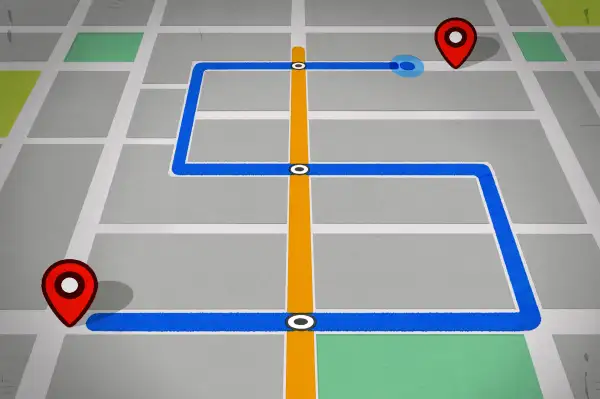Here's How to Track Your Tax Refund This Year

Tax season may have just started, but already many early-bird filers are already awaiting their refunds.
This year, average tax refunds are expected to be as much as $1,000 higher than normal due to several tax changes in President Donald Trump's One Big Beautiful Bill Act. The IRS has been scrambling to implement those changes and is doing so with a much smaller workforce than in previous years.
According to National Taxpayer Advocate Erin Collins, that's a recipe for potential delays this year.
“The success of the filing season will be defined by how well the IRS is able to assist the millions of taxpayers who experience problems," she said in her annual report to Congress.
Many Americans rely heavily on their tax refunds to make ends meet, making questions like "where's my refund?" all the more urgent.
Luckily, there are three ways to find out.
How to track your tax refund
Once you e-file your return or drop it in the mail, you can check in with the IRS for tax refund updates. Here’s how.
1. Check your tax refund status on the IRS website
On the IRS’s website, you can use its refund-tracking tool to check your refund status on your smartphone, tablet or computer.
To see your update, you’ll need to select the “Check your refund” button and then follow the prompts, inputting your Social Security number, tax filing status and exact refund amount. If you entered the information correctly and it's been at least 24 hours since you e-filed your return, you should see your refund status instantly.
Introduced last year, the IRS offers more detailed updates about your refund on the "Where's My Refund?" page, including three main statuses:
- Return received: The IRS received your tax return and is processing it.
- Refund approved: The IRS approved your refund and will issue it by the date displayed.
- Refund sent: The IRS sent your tax refund via direct deposit or mail, depending on your preferred method. Direct deposits may take up to five days to hit your bank account, while mailed checks will likely take several weeks.
For paper tax returns, your status should display four weeks after filing. And if you recently e-filed prior-year tax returns, it should take about four days to show your refund status.
Additionally, if you've set up an IRS account, you can access more information by requesting your tax and account transcripts. Some folks swear this is a hack to find out when you'll get your tax refund — and, to be fair, your account transcript does include a log of any recent IRS action — but the IRS says the Where's My Refund? tool is your best bet as it's updated daily, typically overnight.
2. Use the IRS2Go app for refund updates
If it’s more convenient than using the website, you can also check your tax refund status using the IRS2Go app, which is available on the Amazon Appstore, the Apple App Store and the Google Play Store.
This free IRS app has several uses beyond checking your refund status, but if that’s all you need to do, select the refund tab and input your personal information. Just like the IRS website, you’ll need to provide your Social Security number, filing status and refund amount. Then tap submit to see your refund status.
Again, you’ll want to make sure it has been at least 24 hours since you e-filed your return or four weeks since you mailed it off.
Speaking of those extra features, you can also use the IRS2Go app to pay your tax bill, review tax tips and get directions for on-site tax assistance nearby.
Bonus money: Deposit funds into a new SoFi Invest Account to earn up to $1,000 in stock.
3. Call the IRS directly
For general status updates on your tax refund, the IRS recommends not calling the agency unless you've been specifically prompted to do so.
If there's an issue or delay with your refund, the IRS may ask you to call them via the Where's My Refund tool. In some cases, the IRS may require more information to process your return before issuing the refund, and so it will contact you by letter. Follow those instructions before calling the IRS help line on your own.
The IRS also runs an automated refund hotline at 800-829-1954 if you're unable to use the website.
When calling the agency, keep this information handy:
- Social Security number
- Birth date
- Filing status
- Prior year’s tax return
- The tax return in question
- Any correspondence the IRS has sent you
Save smarter: Take control of your money with the Rocket Money budgeting app.
How long your tax refund will (probably) take
Generally speaking, the sooner you file your taxes, the sooner you will get your tax refund. Choosing direct deposit as your refund delivery method can also speed up the process. The IRS phased out paper checks in 2025, but you can opt to receive refunds by payment apps or pre-paid debit cards, though this may prolong the timeline.
Normally, the turnaround is pretty fast: The IRS issues the vast majority of refunds within 21 days for e-filers. If you filed a paper tax return, the agency says it may take four or more weeks to get your refund.
Keep in mind that the IRS is legally prohibited from issuing refunds before mid-February to people who claim the earned income tax credit or the additional child tax credit. If you claimed one of those credits and filed at the start of tax season, it may take a little longer than the time frame above to receive your refund.
Remember: Taxes are due April 15 for most people this year. Filing sooner than later will help you find out what your refund will be — or to know if you owe — so that you have plenty of time to plan accordingly.





